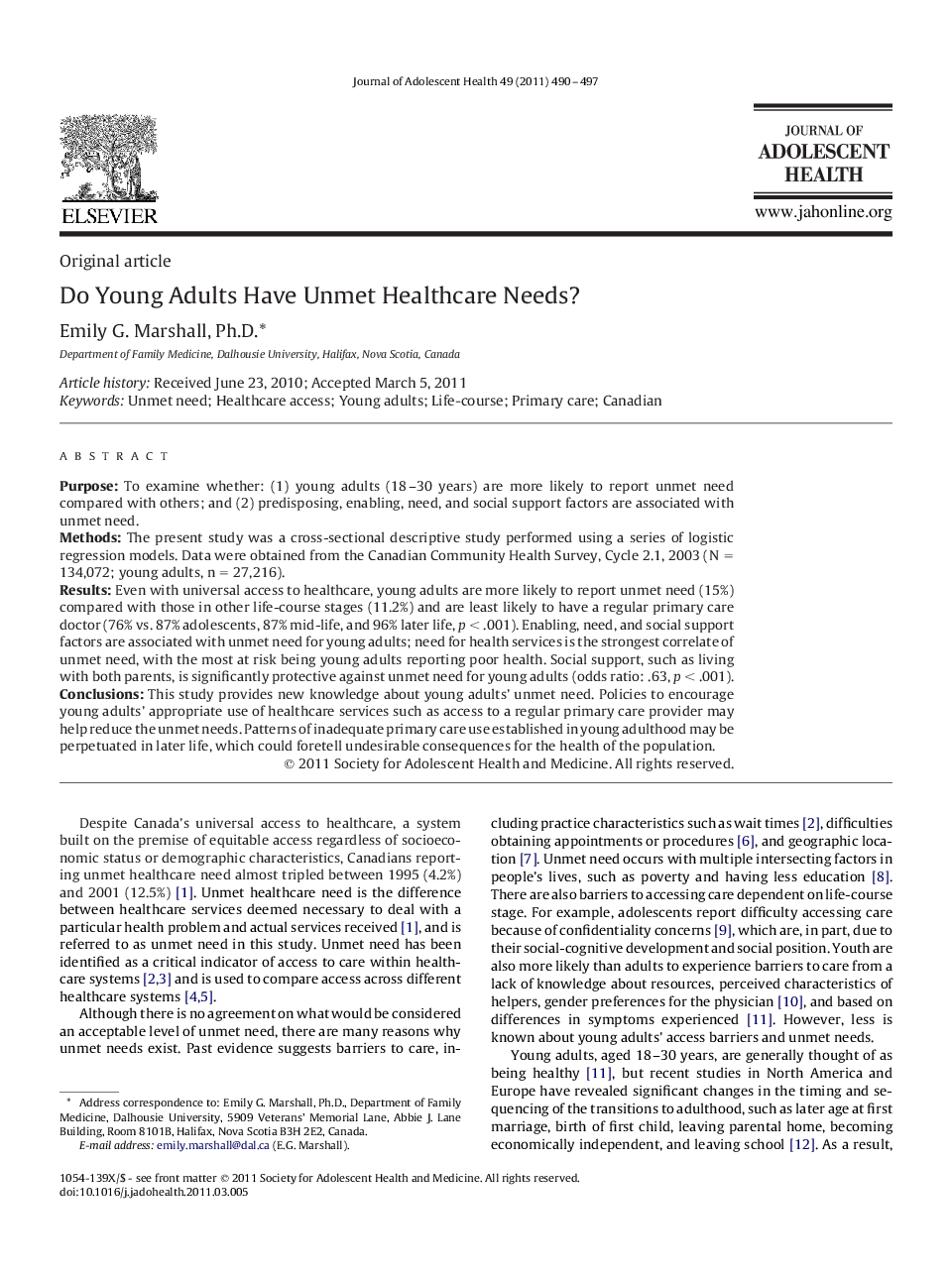| کد مقاله | کد نشریه | سال انتشار | مقاله انگلیسی | نسخه تمام متن |
|---|---|---|---|---|
| 1079933 | 950523 | 2011 | 8 صفحه PDF | دانلود رایگان |

PurposeTo examine whether: (1) young adults (18–30 years) are more likely to report unmet need compared with others; and (2) predisposing, enabling, need, and social support factors are associated with unmet need.MethodsThe present study was a cross-sectional descriptive study performed using a series of logistic regression models. Data were obtained from the Canadian Community Health Survey, Cycle 2.1, 2003 (N = 134,072; young adults, n = 27,216).ResultsEven with universal access to healthcare, young adults are more likely to report unmet need (15%) compared with those in other life-course stages (11.2%) and are least likely to have a regular primary care doctor (76% vs. 87% adolescents, 87% mid-life, and 96% later life, p < .001). Enabling, need, and social support factors are associated with unmet need for young adults; need for health services is the strongest correlate of unmet need, with the most at risk being young adults reporting poor health. Social support, such as living with both parents, is significantly protective against unmet need for young adults (odds ratio: .63, p < .001).ConclusionsThis study provides new knowledge about young adults' unmet need. Policies to encourage young adults' appropriate use of healthcare services such as access to a regular primary care provider may help reduce the unmet needs. Patterns of inadequate primary care use established in young adulthood may be perpetuated in later life, which could foretell undesirable consequences for the health of the population.
Journal: Journal of Adolescent Health - Volume 49, Issue 5, November 2011, Pages 490–497